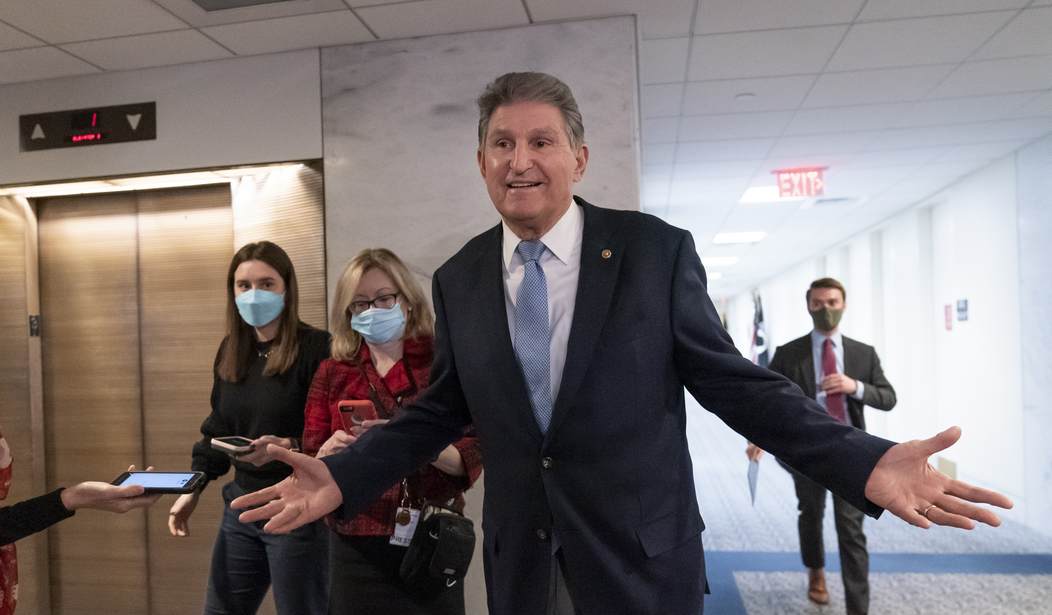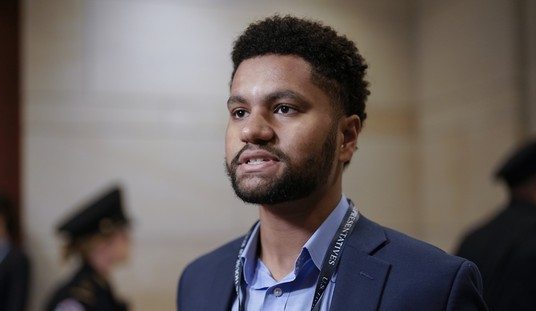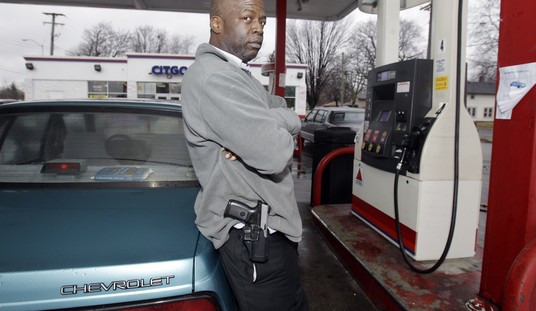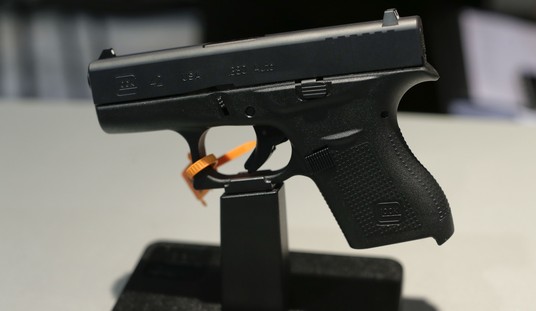The West Virginia Democrat isn’t changing his tune on keeping the filibuster in place, but that doesn’t mean he’s not trying to get 60 senators to sign on to new gun control legislation. On Monday, Manchin voiced his support for raising the age to purchase a modern sporting rifle from 18 to 21, while also signaling his openness on a complete ban for all adults.
That’s a different tone than Manchin sounded just a few years ago, when he expressed his doubts about a ban on so-called assault weapons following the shootings at Marjory Stoneman Douglas High School in Parkland, Florida. At the time, Manchin said he didn’t know anyone who’d committed a crime with one of the rifles. Today he said he doesn’t know why anyone needs to own one.
“I never thought I had a need for that type of a high-capacity automatic weapon,” Manchin told CNN on Monday. “I like to shoot, I like to go out and hunt. I like to go out sports shooting. I do all of that. But I’ve never felt I needed something of that magnitude.”
Manchin also said he “wouldn’t have a problem on looking at” backing a ban on so-called assault weapons — a proposal pushed by the White House and Democratic leaders, but that stands no chance of winning the needed 60-votes in the Senate.
“It depends on what they, how they would approach it,” Manchin said. “I’m open to anything that makes gun sense.”
That’s a quintessential answer from a longtime politician: express openness to something without committing to it. Manchin can still tell his constituents in ruby-red West Virginia that he wouldn’t do anything that’s gonna infringe on their Second Amendment rights while still offering up words of comfort and support for the gun control lobby on Capitol Hill.
In the Monday interview, Manchin argued that two new laws could prevent some of the recent mass shootings: Requiring individuals to be 21 to buy high-powered rifles and imposing minimum state standards to create red flag laws. The two elements are part of the bipartisan negotiations, but Senate sources have expressed skepticism that raising the age for gun purchases will be included in any final package due to GOP resistance.
“Every time we’ve tried to do something after horrific, horrific tragedy such as this, people said, ‘Well, that wouldn’t have prevented that, that wouldn’t have prevented that,’ ” Manchin said. “Well, we know we can do something that would have prevented this: raising the age. Making sure that the age at least gives us a chance to work with that person, see, evaluate and, and have a little maturity to them. And the second thing is that we know that the red flag laws do work, as long as there’s due process.”
Republicans have pushed back on raising the age to 21, with some pointing to a 2-1 ruling in the US Court of Appeals for the Ninth Circuit finding a ban on 18- to 20-year-olds buying the guns is unconsitutional, though a full panel of the court has not ruled of the matter. Manchin rejected the argument that raising the age is unconstitutional.
“Why do we have driver’s license? Why is there a certain age for everything that we do in this society?” Manchin asked. “It’s always been accepted. So I don’t see how this one thing can be any different than other things we do.”
Why is the license to get behind the wheel of what can easily be a deadly weapon 16 in most states, while Manchin wants to raise the age to purchase the most-commonly sold rifle in the U.S. to 21? Manchin’s argument is that lawmakers can raise the age, not really that they should. But here are some facts for Machin to consider: according to the FBI’s recent report on active shooter incidents in the United States last year, just 16 of the 61 incidents involved killers who were younger than 25, with the most common age range for suspects falling between 25-34. In fact, there slightly more active shooters over the age of 40 (17) than younger than 25 (16).
Focusing on the age of a suspect is a red herring, especially given the rarity of these types of events. Should we be concerned about the fraying mental health of young adults and teenagers? Absolutely, but not because most of them are in danger of becoming mass shooters, which simply isn’t the case. We should be worried about them because not only are more teens and young adults dying from violent crime, but from drug overdose deaths (an increase of more than 100% between 2019 and 2021), alcohol, and suicide. There is a crisis of despair that is going largely unaddressed by both lawmakers and society more broadly, and the longer we ignore it the worse its many symptoms will become.
The age limits and outright prohibition for under-21s and alcohol and hard drugs haven’t prevented an exponential rise in the number of teenagers dying from their use and abuse, so I’m skeptical that an under-21 ban on the purchase and possession of commonly-owned firearms is the magic solution that Manchin seems to think it is.
I’ve already written about the flaws in red flag laws once today, but if you missed it I’d encourage you to read it here. Suffice it to say that beyond the due process concerns that Manchin mentions, there are several other fundamental problems with Extreme Risk Protection Orders, including their potential chilling effect on individuals who may refuse to seek help with mental health precisely because they’re worried about an overzealous counselor initiating a red flag firearms seizure petition.
While any potential deal on gun control in the Senate requires Manchin’s buy-in, however, that doesn’t mean that his support for any particular anti-gun restriction is going to make it into any final package, or that there’ll be ten Republican senators willing to go along on whatever consensus is reached among the Democrats and Republicans who are negotiating. Manchin may be open to raising the age to purchase a semi-automatic rifle to 21, but according to a Monday New York Times interview with Texas Sen. John Cornyn, who’s also involved in the talks, an under-21 ban on modern sporting rifles is still a non-starter.









